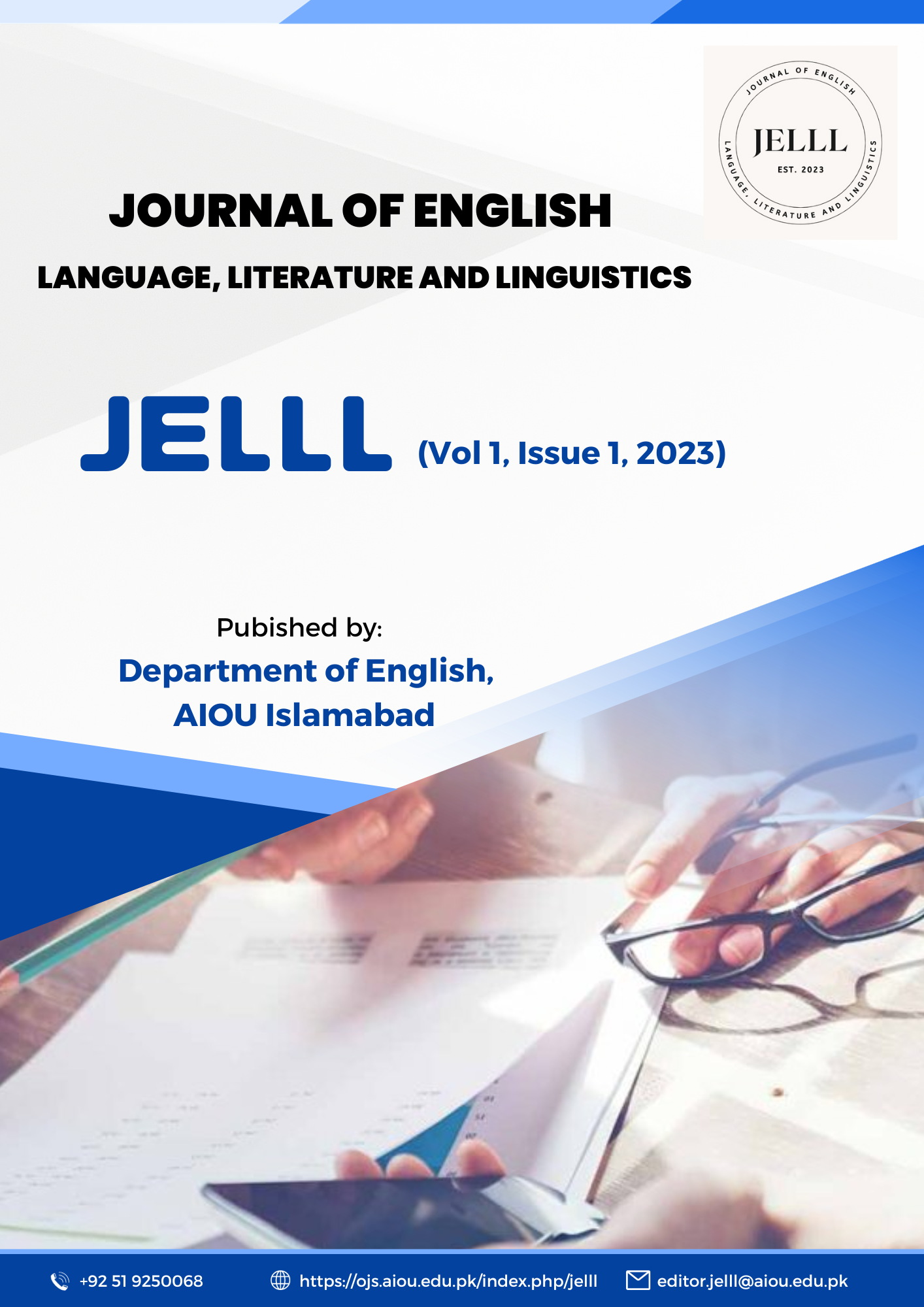Hybridization and Cultural Transformation in No Longer at Ease and Arrow of God
Keywords:
Hybridity, postcolonial, cultural transformation, Chinua AchebeAbstract
In postcolonial studies, “Hybridization” refers towards the blending of different cultures and beliefs in a single society. Chinua Achebe’s novels No Longer at Ease and Arrow of God have been analysed here in which the native colonized people entangle in hybridity after the intervention of colonial forces along with their culture and religion. The present article pores over the fact that the colonized people face ultimate loss at personal and social levels by being entangled in two opposite cultural and religious beliefs. They adopt the indigenous and the foreign culture and beliefs according to their personal interests and benefits. The study is based on Homi K. Bhabha’s theory of hybridity in The Location of Culture. The textual analysis illustrates that the colonial administration is not only responsible for the effects of hybridization; rather the approaches of the natives also play a significant role in downfall of indigenous culture and religion. The hypothesis is accomplished by discussing the instances of hybridization in the novels and it is demonstrated that this hybrid approach of the local people affects their individual and collective lives.
Downloads
References
Achebe, C. (2001). No Longer at Ease. New Delhi. Penguin.
--- (1969). Arrow of God. New York. Anchor Books.
--- (1994). Things Fall Apart. New York. Anchor Books.
Anand, M. R. (1940). Untouchable. London. Penguin.
Ashcroft, B., Griffiths, G., & Tiffin, H. (2006). The Post-Colonial Studies Reader. London. Routledge.
Bhabha, H. K. (1994) The Location of Culture. London. Routledge.
Campu, A. (2013). “Tradition Versus Modernity in Chinua Achebe’s No Longer at Ease.” Bulletin of the Transilvania University of Brasov. 6,(2), 1-6.
Grix, J. (2010). The Foundation of Research. London. Palgrave Macmillan.
Malik, M. A., Abbas, F., & Jawad, M. (2020). Narrative, Narrator and Narration: A structuralist and psycho-narrative reading of “The Kite Runner” by Khaled Husseini. Elementary Education Online, 19(4), 3746-3755.
Massucco, J. (2015). “Choice and Hybridity in Colonial India: The Pursuit for empowerment in Social Relationships.” Innervate. 315-321.
Moanungsang. (2011). “Death of Native Culture in Chinua Achebe’s No Longer at Ease.” Indian Folklore. 3, (5), 213-221.
Nayar, P. K. (2008). Postcolonial Literature: An Introduction. New Delhi. Dorling Kindersley.
Said, E. (1993). Culture and Imperialism. New York. Vintage Books.
--- (2003). Orientalism. London. Penguin Books.
Sharif, H., Iftikhar, A., & Abbas, F. (2022). Incongruencies between Theory of Language Universals and Phonological Development: A Case Study of Urdu Speaking Children. Competitive Social Science Research Journal, 3(1), 379-389.
Zubair, S. (2012). Crossing Borders, Reinventing Identity (ies): Hybridity in Pakistani English Fiction. Pakistan Journal of Social Sciences (PJSS). 32, (1), 65-75.
Downloads
Published
How to Cite
Issue
Section
License
Authors shall retain the copyrights to the article. Author/s grant the journal an irrevocable,
non-exclusive license to publish the article electronically and in print format, and to identify
itself as the original publisher. Author(s) can grant any third party the right to use the article
freely as long as its original authors and citation details are identified. The article is
distributed under the Creative Commons Attribution 4.0 License. Unless otherwise stated,
associated published material shall be distributed under the same license.


